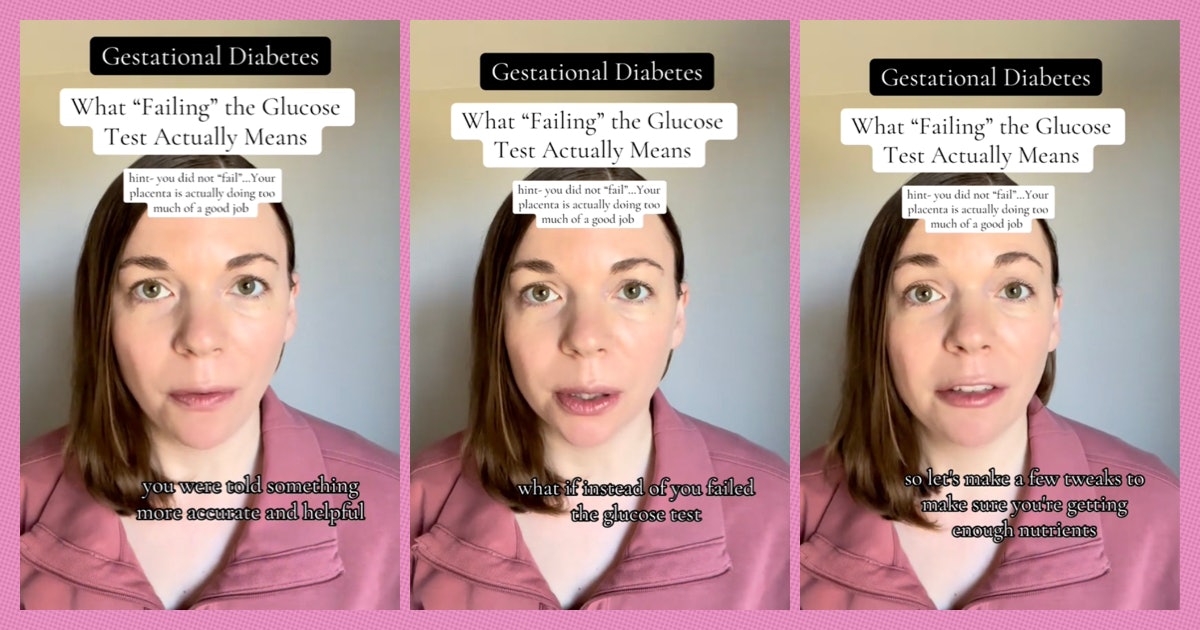
When it comes to things to look forward to in pregnancy, the list is long. The first time you hear baby’s heartbeat. The first time you feel movement. When you finally figure out the perfect name to give your little one. There’s also plenty to “look forward to.” Morning sickness, exhaustion, and, of course, the glucose test. While it’s never going to be fun, one TikTok creator has an idea about how it can be less bad, and it’s honestly great.
For the uninitiated, gestational diabetes (GD) is a serious but not uncommon condition in which the pregnant person’s body cannot use insulin — the hormone that regulates blood sugar — effectively. Mothers with GD are at increased risk of preeclampsia, which can lead to liver and kidney damage, stroke, seizures, and death. Babies of mothers with GD are at increased risk of higher birth weight; preterm birth; breathing problems immediately after birth; low blood sugar (which can be just as dangerous as high blood sugar); and stillbirth.
Unfortunately, there is an unwarranted stigma around GD — many believe it’s something you can avoid with discipline, diet, and exercise (which is not always the case) and others think that it’s not an issue if look a certain way. Neither thing ist aided by the idea that if one has “failed” the glucose test, which requires drinking a high-glucose drink and seeing how your body processes the sugar, you’ve done something wrong in your pregnancy.
TikTok creator Erica — a Registered Dietitian Nutritionist who posts about gestational diabetes as @gdnutritionist — wants to reframe how we talk about GD, both as pregnant people and as medical professionals.
“What if, instead of ‘You failed the glucose test’ you were told something more accurate and helpful?” she begins.
“Like:
‘Your placenta is releasing hormones so that nutrients from the food you eat can get to your baby for growth and development. Your placental hormones are so good at their job of sending energy to baby that they’re actually blocking your body’s ability to use insulin. And we do need insulin to keep blood sugar levels low. So let’s make a few tweaks to make sure you’re getting enough nutrients, baby’s getting enough nutrients, and sugar isn’t building up in the bloodstream.
‘And by the way: this is totally doable with the right tools. You can still have a healthy child and a smooth delivery even with gestational diabetes.’
By making this the mainstream approach, she says, not only would pregnant people feel less guilt and shame about a GD diagnosis, but they would have a better understanding of the condition and be in a better position to manage it effectively for better birth outcomes.
So if you have a glucose tolerance test coming up and it comes up with a GD diagnosis, don’t think of it as “failing.” Instead, acknowledge your pregnant body as the overeager, overachiever it is.
This article was originally published on scarymommy.com.

